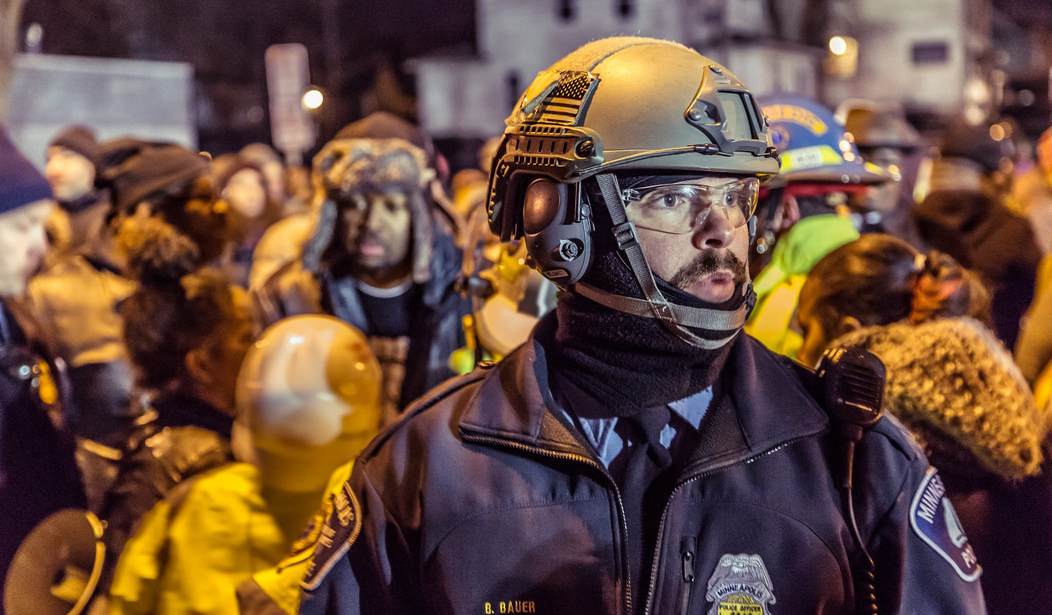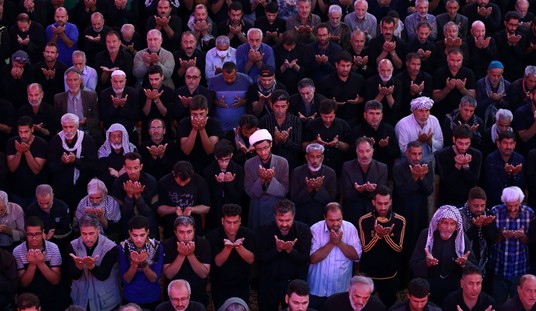We don’t need new laws. Just enforce the ones we have. That’s the response from many sincere conservatives to any proposed legislation strengthening penalties for criminal protests.
That sentiment fails to recognize the limitations of current law. Laws regarding criminal trespass and the disruption of infrastructure, such as marching down an interstate highway on foot, are designed to address a handful of perpetrators at most. They prove wholly inadequate for dealing with the recent trend in mass demonstration, as evidenced by a recent case in Minnesota. From the Minneapolis Star Tribune:
A Ramsey County judge has thrown out gross misdemeanor riot charges against more than 40 people in connection with a July protest on Interstate 94 in St. Paul that was sparked by the fatal police shooting of Philando Castile.
In a ruling that disappointed police and the city attorney, Judge G. Tony Atwal said Wednesday that although somebody threw rocks and bottles at police, there was no evidence that the defendants in the case had done so.
However, Atwal wrote that evidence exists to uphold misdemeanor charges of unlawful assembly and public nuisance for blocking the freeway.
During the night of July 9, about 300 protesters entered the freeway at Lexington Avenue and marched eastward, blocking traffic in both directions while some threw rocks, cement chunks and other items at law enforcement.
[…]
Authorities said at least 16 officers were injured. As a result, 46 people were charged with third-degree riot, along with misdemeanor public nuisance and unlawful assembly.
In his ruling, Atwal said simply being at the protest and ignoring orders to leave the freeway does not constitute active rioting. In most cases, there is no direct evidence to prove those charged were throwing items at law enforcement officers.
The ruling stands as a defensible interpretation of the law. How can you prove that these 40 people were direct participants in those acts which constituted a riot? You can’t.
Of course, that presents an obvious flaw in the system. Someone among those 40, at least one if not more, did assault the police. Whoever was guilty effectively got away with it because they were masked among the anonymity of a larger group. The question for our consideration is: should that be okay? Should we let people get away with assaulting police officers because we can’t identify them among a crowd engaged in unlawful assembly? Or should we change the law so that participation in unlawful assembly makes one liable for the actions of the mob?
The latter option is not without precedent. When organized crime bosses hid behind the actions of their underlings to avoid criminal liability, we responded with the RICO Act, holding such leaders responsible for the actions they ordered others to take. RICO aligned the letter of the law with its spirit, recognizing that it has never been the intention of society to allow anyone to get away with murder.
In a similar sense, we need new legislation today which aligns the letter of the law with its spirit, criminalizing the organization of — and participation in — large-scale disruptions of the peace. It should not be possible for someone to get away with breaking the law simply because he had several dozen accomplices masking his specific actions. Nor should it be feasible for an ad hoc group like Black Lives Matter to publicly organize unlawful assembly and suffer no criminal liability. Like the mobs of old, these criminal agitators know the limits of the law and work to purposely overwhelm the system. We can either let them continue without accountability or slap them down. I vote for the latter.









Join the conversation as a VIP Member